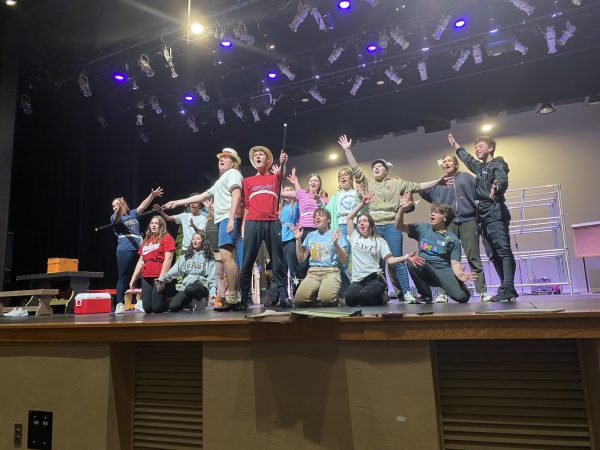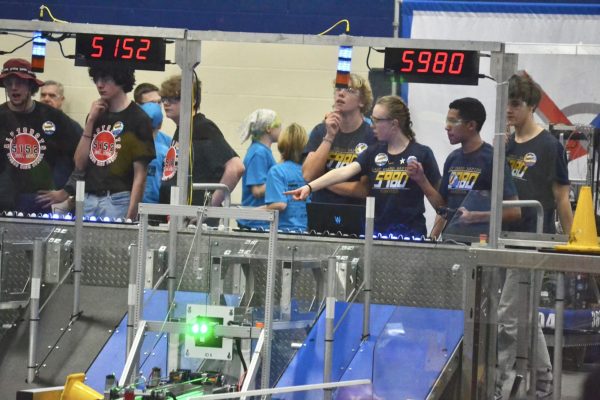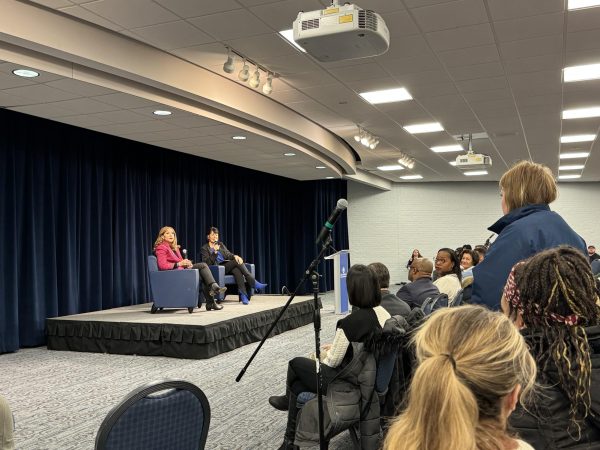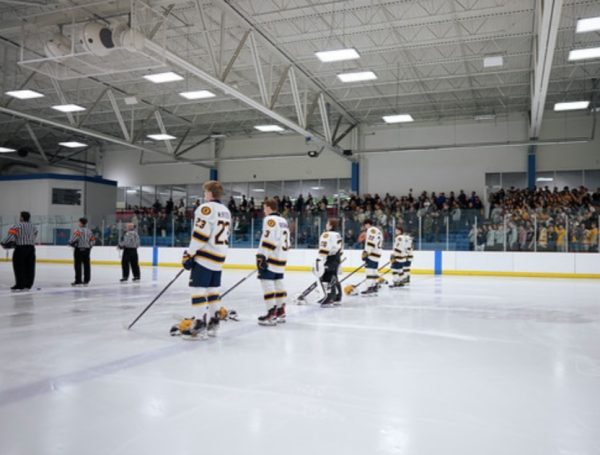Michigan Staff Shortage Worsens Amid COVID-19
The student-to-teacher pipeline is disintegrating.
More teachers are retiring, and fewer are entering the workforce–a consistent, decades-long pattern that has culminated in a statewide teacher shortage. According to the MEA and the Center for American Progress, teacher retirements rose 40% in the 2020-2021 school year, while enrollment in teacher preparation programs saw a 50% decline – dropping by more than 10,000 students
While COVID-19 is a significant factor in the shortage, pushing teachers to retire earlier, Michigan teacher licensing and regulatory rules are preventing some capable teachers from entering the workforce — checking bureaucratic boxes rather than effectively weeding out underqualified applicants.
State-wide implications extend to the community. After a large number of retirements in the spring of 2021, the district had to compensate for the sudden lack of positions. Fortunately, East had a large pool of qualified applicants and a robust hiring process. But there are still shortages–in custodial staff, cafeteria workers, and substitute teachers.
“Generally, people want to come for us in East Grand Rapids,” said Assistant Superintendent of Finance and Operations, Anthony Morey.
“We were proactive last year and we posted our job openings very early in the hiring season, which for education is March, April, May, June and August, typically before school starts. We were able to fill a lot of positions before the end of June.”
An additional barrier for prospective educators is salary; Michigan ranks 41st in this area. East’s average teacher salary is $69,742, according to the 2021 community budget guide, which is on the higher end among schools in Kent County, but lower than many districts of the Detroit area.
A significant factor in salary determination is the Recreational Millage, up for renewal in the Nov. 2 city election. In 2021, the millage comprised $965,000 of school funding. While the millage only covers operational expenses, such as utilities, the community pool, PAC manager, fields, and custodians, the community voting ‘no’ will have significant impacts on funding. A reallocation would be made, paying teachers less to compensate for the lack of funding in other areas, and exacerbating an already overwhelming lack of custodial and substitute staff.
“The recreation millage is fundamental to our finances,” Morey said. “If the community were to turn down the recreation millage, in two years without a replacement millage when that millage expires, it would be a major challenge to find a million dollars.”
Amid staffing shortages is another problem: fewer students are pursuing education.
Enrollment numbers from Western Michigan University’s College of Education and Human Development indicate a significant drop over the last 10 years. Morey said this could be due to the negative culture around entering the workforce as an educator.
“If you were a teacher, paying attention to the headlines of what politicians were saying about your profession in 2012, you would have heard a lot of negativity, a lot of unfair assaults on the integrity of a whole group of people,” he said. “That’s unfortunate, but I’m hopeful that that’s going to change permanently, for a more positive narrative that teachers are dedicated, working hard, serving kids and families nobly with the very best of their ability.”
There is hope for the future of educational staffing. Proposals such as House Bill 5056, which would reduce barriers for out-of-state teacher certification, and Western Michigan University’s Urban Teacher Residency Program, which takes school employees and trains them in one year to become teachers, are actions in Michigan legislation working towards positive change.
“There are more demands now on our educators than ever,” Principal Craig Weigel said. “Teaching is a noble career. I think we need more motivated, caring, compassionate, enthusiastic people to consider that field.”
Amid staffing shortages is another problem: fewer students are pursuing education.
Enrollment numbers from Western Michigan University’s College of Education and Human Development indicate a significant drop over the last 10 years. Morey said this could be due to the negative culture around entering the workforce as an educator.
“If you were a teacher, paying attention to the headlines of what politicians were saying about your profession in 2012, you would have heard a lot of negativity, a lot of unfair assaults on the integrity of a whole group of people,” he said. “That’s unfortunate, but I’m hopeful that that’s going to change permanently, for a more positive narrative that teachers are dedicated, working hard, serving kids and families nobly with the very best of their ability.”
There is hope for the future of educational staffing. Proposals such as House Bill 5056, which would reduce barriers for out-of-state teacher certification, and Western Michigan University’s Urban Teacher Residency Program, which takes school employees and trains them in one year to become teachers, are actions in Michigan legislation working towards positive change.
“There are more demands now on our educators than ever,” Principal Craig Weigel said. “Teaching is a noble career. I think we need more motivated, caring, compassionate, enthusiastic people to consider that field.”






